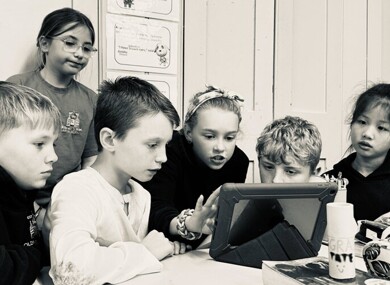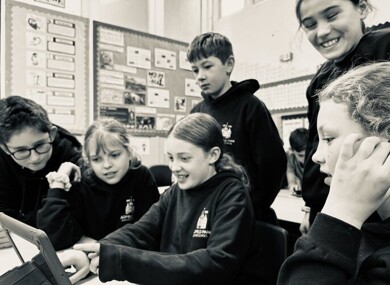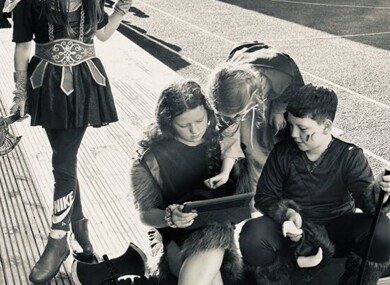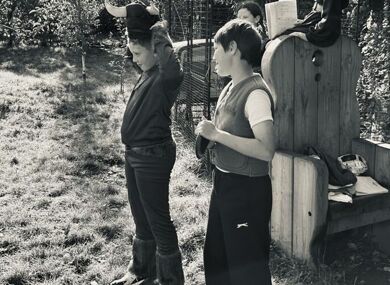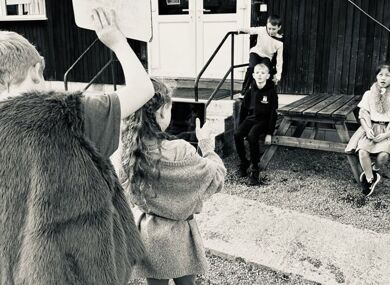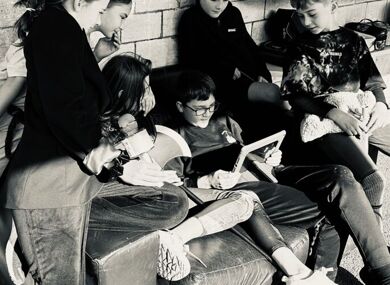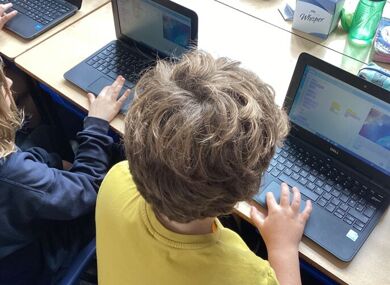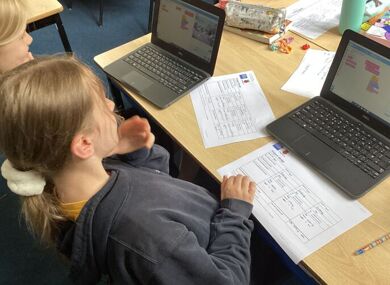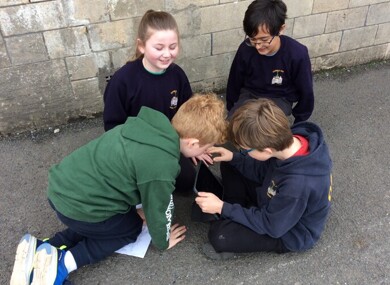- Home
- Children
- Subject Information
Computing - Mrs Samways
Intent:

Computing Curriculum S-Plan (KS1 to Year 6).pdf
At Oldfield Park Junior School, we value Computing as an important part of the children’s entitlement to a broad and balanced curriculum, while also being aware that the ability to use technology effectively is a vital life skill. Therefore, we want to model and educate our pupils on how to use technology positively, responsibly and safely. We want our pupils to be creators as well as consumers, and our broad curriculum encompassing computer science, information technology and digital literacy reflects this.
Discrete Computing lessons provide the children with the opportunities to develop and extend skills in a creative way, alongside opportunities to apply skills in various digital contexts. Beyond teaching computing discretely, we also demonstrate the cross-curricular nature of this learning domain to enable them to see the possibilities when applying their skills.
Implementation:
Our curriculum for Computing is adapted from the ‘Teach Computing’ Scheme of Work and covers all aspects of the National Curriculum. This scheme was chosen as it has been created by subject experts using the latest pedagogical research. It provides an innovative progression framework where computing content has been organised into interconnected networks called learning graphs.
The children are taught Computing every term, either on a weekly basis or as part of a Computing project week. At OPJS, our three key principles of computing learning are:
1) Digital Literacy
2) Information Technology
3) Computer Science
All classes have discrete lessons at the start of each term on how to stay safe online at a level relevant to their year group and online uses. In addition, online safety discussions happen throughout each weekly lesson to keep this element of Computing as a priority.
The children's learning is further enhanced with whole school focus weeks such as Coding Week (each child completing an ‘Hour of Code’) and Safer Internet Day. The children are also given the opportunity to gain extra experience through attending lunchtime extra-curricular clubs and acting as Technicians. Furthermore, we are committed to ensuring that children have access to up-to-date resources, both software and hardware.
Impact:
Our children enjoy and value the Computing curriculum we deliver, they understand why they are doing things, not just how. Children discuss, reflect and appreciate the impact computing has on their learning, development and well-being.
Through the delivery of an inspiring and rich Computing curriculum, children are enabled to not only make progress through skills acquired but also to express themselves creatively using a range of software. In this way they are able to feel a sense of individuality and freedom, as they work with increasing responsibility and independence.
As children develop their skills across the Computing curriculum, it is clear to see the positive impact that Computing has on both children's well-being and confidence in learning, as their access to the online world opens up. Children feel passionate about developing their interests in Computing and are encouraged to have high aspirations within their further Computing education and future careers.
Formative assessment takes place throughout each lesson and teachers adjust planning accordingly to meet the needs of their class. Children’s progress and attainment is recorded in the Assessment Document folder and the teaching of Computing is monitored by the subject leader through lesson observations and scrutiny of work.
Online Safety
As a member of Palladian Academy Trust, our Online Safety Policy can be found here: Palladian Safeguarding Policies.
We can only be successful in keeping children safe online if we work with parents to ensure the the online safety message is consistent. It is important that parents speak to their children about how they can keep safe and behave appropriately online. Please visit our Online Safety page for further support and information around this.
Reporting online abuse:
Follow this link to find helpful videos for supporting understanding of online issues, with sections for both adults and children. You will also find on this page a link enabling you to report instances of online abuse.





